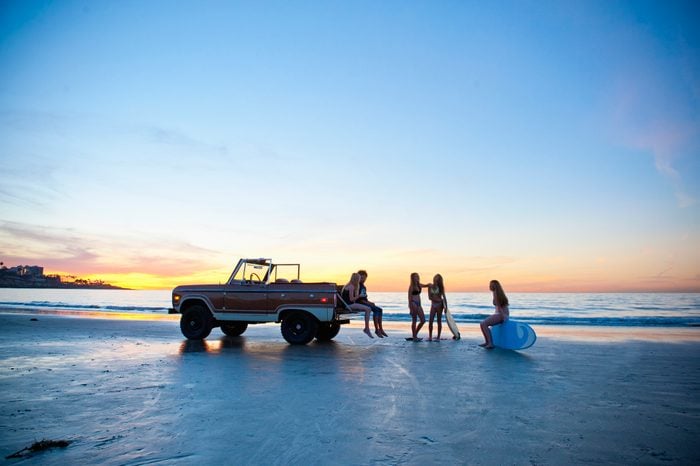
Is everything back to normal?
After months of quarantine due to COVID-19, the country is beginning to open up again. Although it can be tempting to want everything to go back to “normal,” no summer activity outside the home is without risk. Yet, it’s totally possible to minimize dangers by taking measures to avoid getting yourself, or others, sick so you can more safely enjoy the warm weather, vacations, and all the fun this season brings. “At the end of the day, it’s important to still enjoy time with our families this summer and make memories,” says Ellen Eaton, MD, associate professor at the University of Alabama at Birmingham Division of Infectious Diseases. “We can still accomplish that, but just in a way that keeps the health and safety of ourselves and others top of mind.”
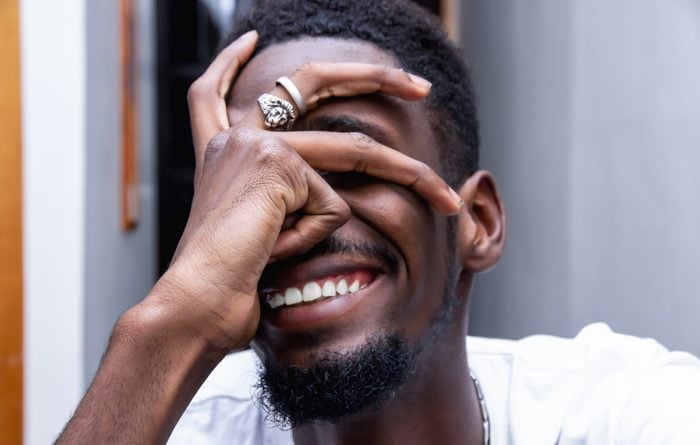
Forgetting the first coronavirus rule
Remembering the first lesson we learned at the beginning of the coronavirus crisis can go a long way when we start going out in public this summer: “Do not touch your face,” says Suzanne Judd, PhD, an epidemiologist at the University of Alabama at Birmingham School of Public Health. “When you leave home, keep your hands off your face. Wash your hands before you eat, wipe your eyes, blow your nose, bite your nails—basically, wash your hands before you touch your face.” Hand-washing can be difficult to comply with when you’re out and about, but this back-to-basics practice is crucial to prevent you from getting sick. In fact, you can prevent these 15 diseases simply by washing your hands correctly. Using hand sanitizer containing at least 60 percent alcohol is a good backup.
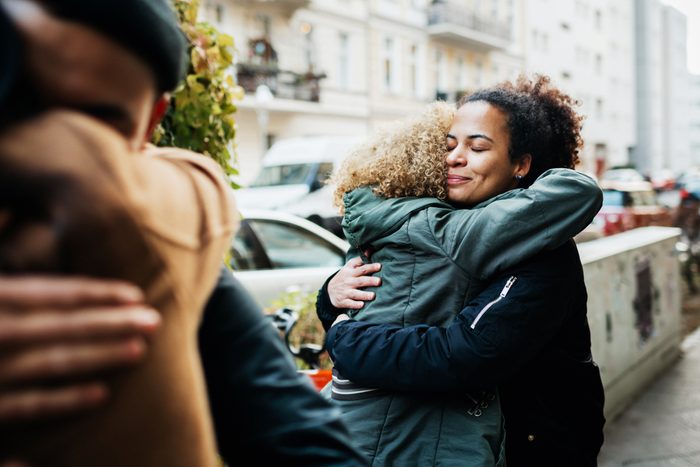
Not keeping your social distance
When going to recreational areas like parks, beaches, and pools, it might be hard not to fall into old patterns. But for the summer we have to keep up our new normal of social distancing. “Try to maintain at least six feet of distance between yourself and others where possible,” Judd says. “Respect others’ space so that, if they or you do accidentally sneeze or cough, there will be less risk of spreading the virus.” This is important especially if you are going to be close to them for a few minutes or longer, says Michelle DallaPiazza, MD, an assistant professor of medicine in the Division of Infectious Diseases at Rutgers New Jersey Medical School. Be prepared to turn around if you arrive somewhere that looks too crowded. After all, the goal is to prevent a second wave of coronavirus.
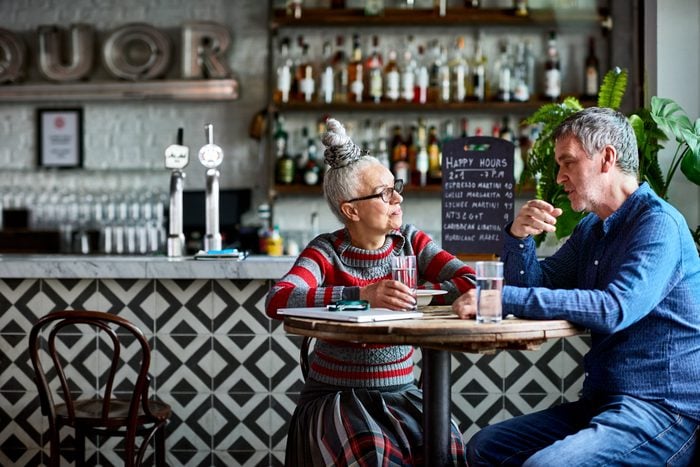
Getting lax about masks
As uncomfortable as some people may find them, especially in the warm weather, face coverings or cloth masks are still necessary when in public places. “The primary reason for this is that the mask will prevent respiratory droplets of an infected person from lingering in the air or settling on surfaces that are in close proximity to them,” Dr. DallaPiazza says. “This is incredibly important because someone who has COVID-19 may have few or no symptoms. If everyone does this, the risk for everyone will be much less.” Judd also says because of the risk of being a “silent carrier,” you have to take this precaution even if you don’t have symptoms. “Because you do not know who is sick, you have to assume everyone is sick, and live life accordingly,” she says. Although you may have heard otherwise, masks are safe to wear.
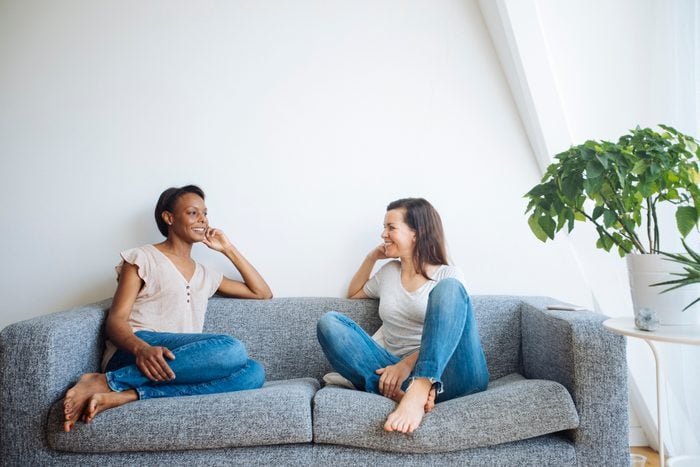
Not setting ground rules with those in your “bubble”
What about creating a social “bubble,” with another family or small group of people you feel safe hanging out with the old-fashioned way for summer fun? Because this does carry an element of risk, you should set expectations with those you plan to have on your quaran-team. “Everyone’s situation is going to be a little bit different,” Dr. DallaPiazza says. “But if you’re planning face-to-face time, I think it is prudent to talk to your friends and family about what precautions they are taking to avoid getting infected, and whether they may have any symptoms of COVID-19.” Also, make sure you know if they’re planning on teaming up with others as well, which would introduce an additional level of risk.
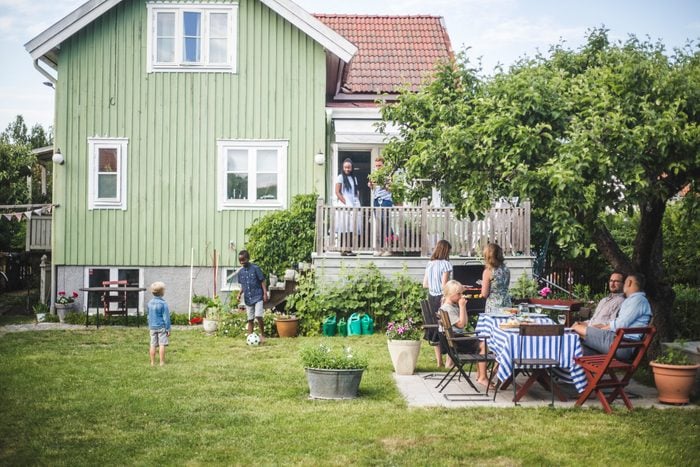
Not taking precautions for backyard parties
Getting together with a large group of people outside your bubble without precautions is still not a smart idea; but here’s what you can do. “Avoid large indoor gatherings in favor of outdoor activities where there is better air ventilation,” says Dr. DallaPiazza. “If you are going to be in fixed outdoor space, for example, a backyard barbecue, with others, it is best to wear a face covering and keep that six-foot distance. Also, it’s important to have hand sanitizer or soap and water readily available, of course, and wash your hands after touching high-touch surfaces.” Be wary of alcohol consumption, which may make risk-taking behavior (in this case, getting too close to others) more likely, and check local or state rules for any limitations on the number of people who can gather. These uplifting stories of neighbors helping during coronavirus will inspire you to do the same.
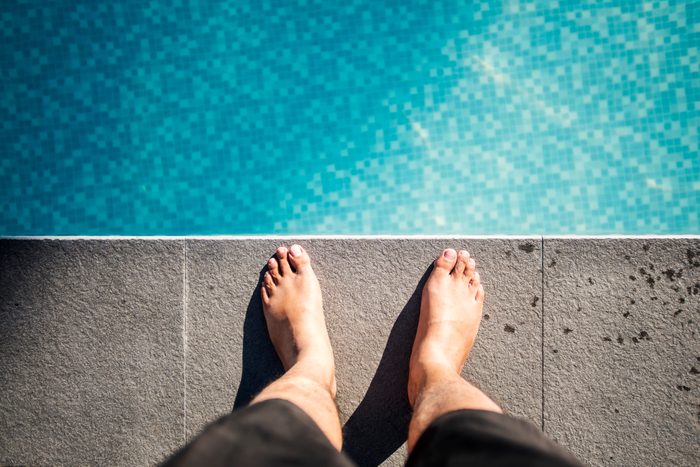
Thinking you can get the virus from swimming
Here’s some good news: You can safely swim in a pool, ocean, or lake. “It is not known whether COVID-19 can be transmitted in water; however, typical water treatments for pool water should inactivate the virus,” Dr. DallaPiazza says. If a pool is maintained with chlorine or bromine, Dr. Eaton agrees there is a very low chance of getting coronavirus through the water. “Years of research around pool maintenance ensures that, if a pool is using the chemicals per standard guidelines, it’s a relatively sterile environment,” she says. “Although there are some viruses and parasites that are waterborne, coronaviruses are not among them.”
Plus, due to the capacity and size of natural bodies of water, people don’t need to worry much about the transmission of COVD-19 through lakes or oceans, Dr. Eaton says. “It is unlikely to be able to survive in ocean water,” Dr. DallaPiazza agrees.
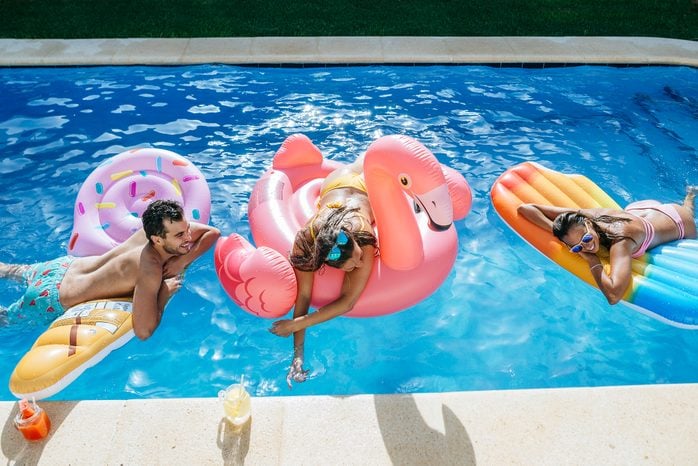
Floating too close in the water
You shouldn’t ignore social distancing, even when in the water. “The key for swimming is to ensure social distancing, both on the beach or poolside as well as in the water,” Dr. DallaPiazza says. Visitors to a pool or beach should practice the same physical distancing, and wear a mask when not swimming, as anywhere else, Dr. Eaton says. Also, don’t wear a mask when swimming as a wet mask could make it difficult to breathe. But social distancing might be hard to do in the water, especially if the pool is relatively small and there are a lot of people in it. If that’s the case, it’s best to be on the safe side and stay out of the water. Crowded pools are one of the 10 things you won’t see at hotels anymore.
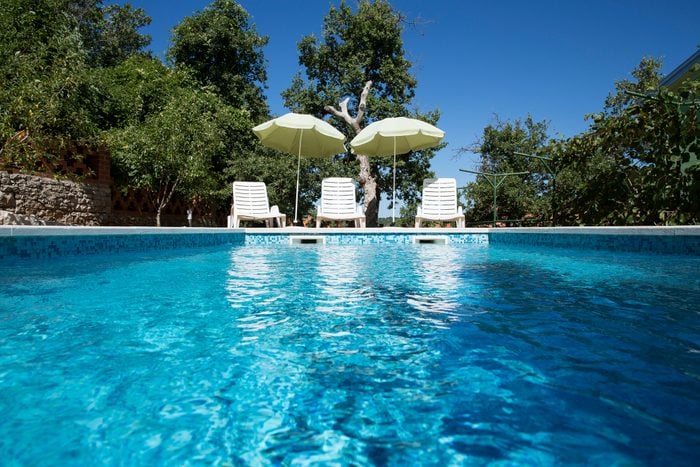
Not wiping off common surfaces at the pool
Visiting a pool, and possibly a lake or beach, presents additional risks, though, in the common surfaces that should be cleaned off first when possible. “When kids play in the water at a pool, they are often very close to one another, playing on the same ladders and rafts and grabbing the same pool noodles. That’s what worries me—transmission due to close proximity and not properly sanitizing common items found in a pool setting,” Dr. Eaton says. “You should decrease opportunities to touch items and surfaces that do not belong to you. Whether that is using the restroom before you visit the pool, sanitizing the pool chair you may use, or not sharing pool toys, these measures can help make a difference and keep your family safe.”
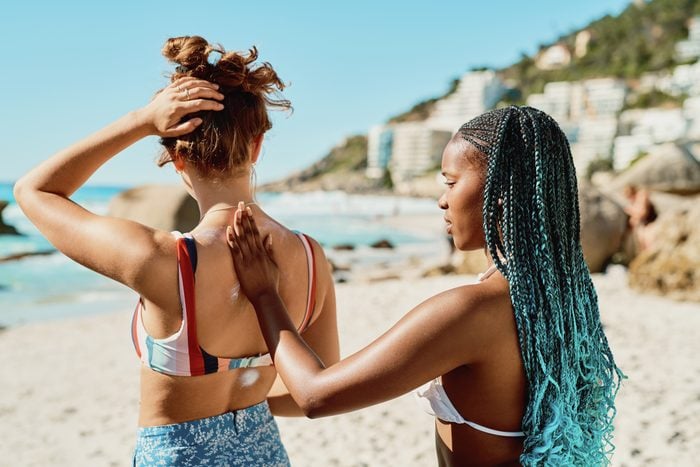
Sharing or not wearing sunscreen
It’s still important to wear sunscreen, including on your face if you’re wearing a mask. “The same rules still apply,” says Bruce A. Brod, MD, a clinical professor of dermatology at University of Pennsylvania Perelman School of Medicine. “Wear masks but do not assume they will protect you from the sun, and so apply sunscreen before going outside with at least an SPF 30 broad-spectrum sunscreen.” You also don’t want to forget it and then have to borrow from others. “Sharing sunscreen has the potential to undermine the CDC guidelines for social distancing,” Dr. Brod says. “People naturally touch the opening of the bottle with their hands to apply the sunscreen often to areas around the face or mouth, so sharing sunscreen bottles may increase the risk of spreading the virus.” Make a new habit to lather on sunscreen before you leave the house, and keep a small bottle in your purse or bag for reapplication. These are the best sunscreens for every type of activity.
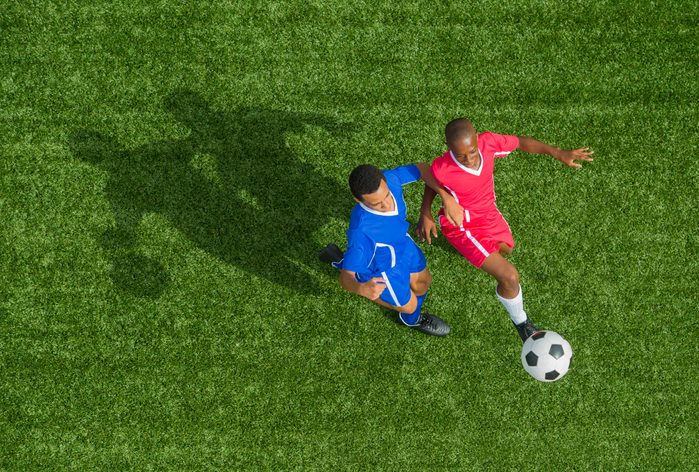
Playing contact sports
It’s important to get physical activity, and exercising together is often a great motivating factor especially when the weather’s nice. But unfortunately, some sports still are very risky. “The safest sports will be the ones where you can keep a distance of at least six feet, like singles tennis. Sports that require close physical contact, such as football, should be avoided,” Dr. DallaPiazza says. Bike riding, skateboarding, golf, and outdoor yoga can also be enjoyed together while distancing. For aerobic exercise, “a person will potentially produce more respiratory droplets with deeper breathing, but it can also be difficult to wear a face-covering while exercising,” Dr. DallaPiazza says. “So for the time being you may need to plan to engage in less taxing exercise so you can wear a mask, or to keep your distance from others.”
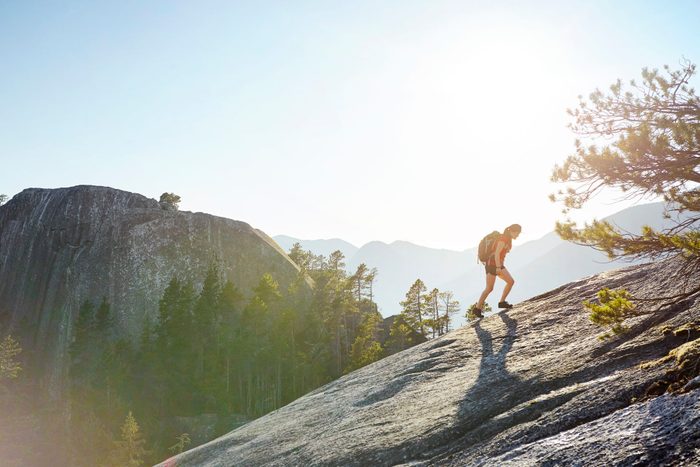
Forgetting the hand sanitizer when hiking
There’s nothing like enjoying the great outdoors in the summertime, and thankfully it’s a recommended activity to engage in. “Provided you can keep a safe distance from others, hiking should be a very safe activity this summer,” Dr. DallaPiazza says. But, you still may have to touch common surfaces, and it can often be hard to find a good place on the trail to clean your hands before a picnic or snack. “The key is making sure that you have access to running water or hand washing stations and hand sanitizer for frequent hand washing, especially after touching something that others may have touched, sneezed, or coughed on,” Dr. DallaPiazza says.
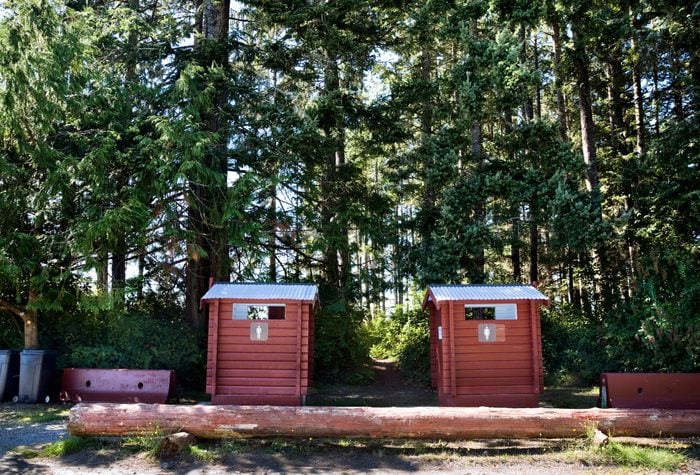
Sharing crowded or unclean facilities at a campground
As with hiking, camping can be a safe activity to enjoy—as long as you think about how much you’ll be in contact with others or things many others have touched, like picnic tables or bathrooms. “The biggest factors to consider here are one, how well will you be able to physically distance yourself from others who are not in your group or who do not live in your household; and two, to what extent will you have to access shared resources or facilities, like restrooms,” says Bertha Hidalgo, PhD, an epidemiologist at the University of Alabama at Birmingham School of Public Health.
Even for those camping in RVs, trips may involve stopping for gas and supplies. “The more you can minimize interactions with others not in your group or household, the lower the risk of infection during a hike or camping trip,” Dr. Hidalgo says. “We know that the virus spreads less efficiently in outdoor spaces, so hiking and camping—with appropriate precautions—allow for a lower risk summer activity.” It’s one of the safest vacations you can take this summer.
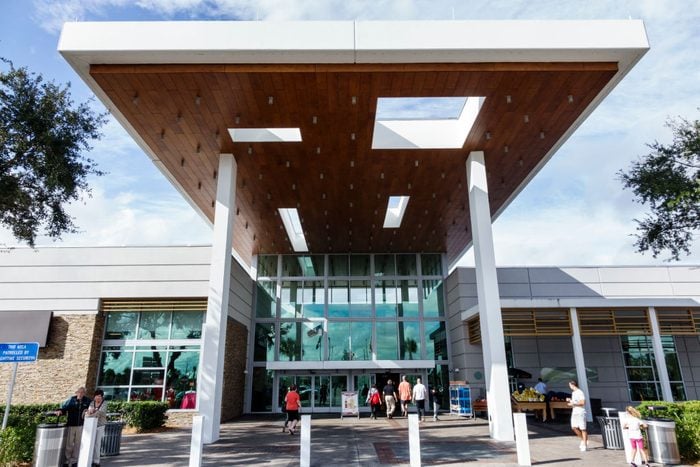
Making frequent bathroom stops on road trips
Vacationing in a driving distance from home may be a lower-risk option than using public transportation or flying, but there are still ways to plan ahead to make your road trip safer. “Road trips entail accounting for a different set of risks: bathroom stops, food stops, perhaps even interactions with the hotel staff if making pit stops for overnight stays,” Dr. Hidalgo says. “If at all possible, minimize bathroom stops, or try to stop at bathroom locations with low traffic. Disinfect and wash hands after visiting any of those places. Wear a mask when stopping for food and/or gas, especially if going into closed [indoor] businesses.”
Dr. DallaPiazza says to maintain the six-foot social distance in restrooms. “Wash your hands thoroughly and promptly after using the bathroom, and use a paper towel to open the restroom door to exit,” she says. “If no paper towel is available, hand sanitize immediately after touching door handle surfaces.” Plus, you can bring your own food to avoid having to stop for meals. This is what travel could look like after coronavirus.
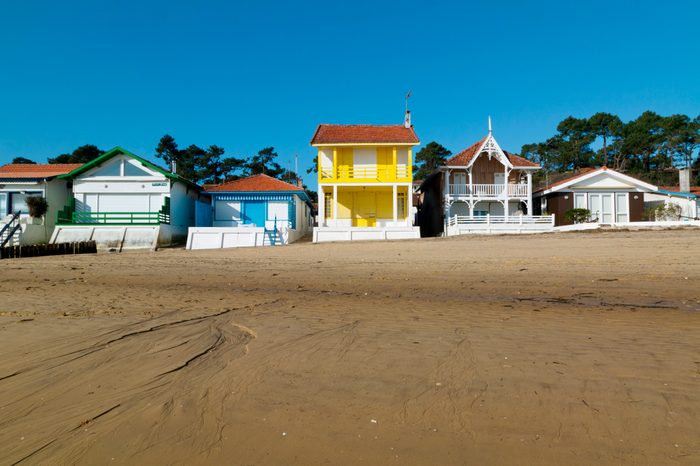
Not giving your vacation home a once-over
Vacation rentals can be a good option this summer because private accommodations for you and your family mean the risk of running into others is less. Plus, a secluded vacation at the mountains, lake, or beach is safer than high-trafficked spots like Walt Disney World, which recently announced plans to reopen. But other people will have stayed in the vacation house before you, so even if the owner has implemented stricter cleaning measures, it’s best to give the place a quick wipe-down when you arrive. “Consider how frequently your vacation home may have been used previously,” Dr. Hidalgo says. “With things like vacation homes and car rentals, simply make sure to disinfect surfaces prior to use and wash your hands afterward.” Dr. DallaPiazza says to spend the first several minutes there wiping down high-touch surfaces with a household cleaner, especially in the kitchen and bathroom. Also, be sure to check local quarantine requirements if you’re traveling out of state. These household products kill coronavirus.
For more on this developing situation, see our comprehensive Coronavirus Guide.
